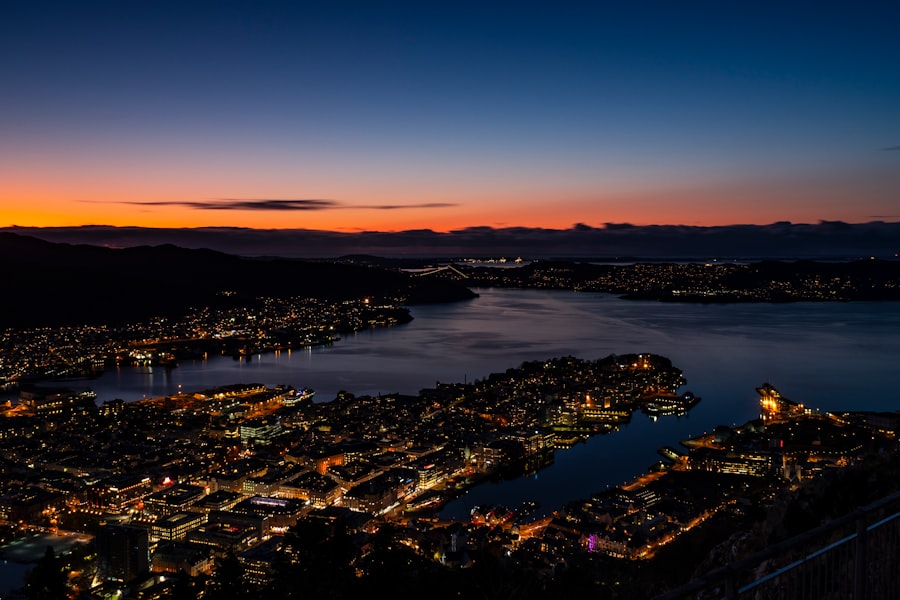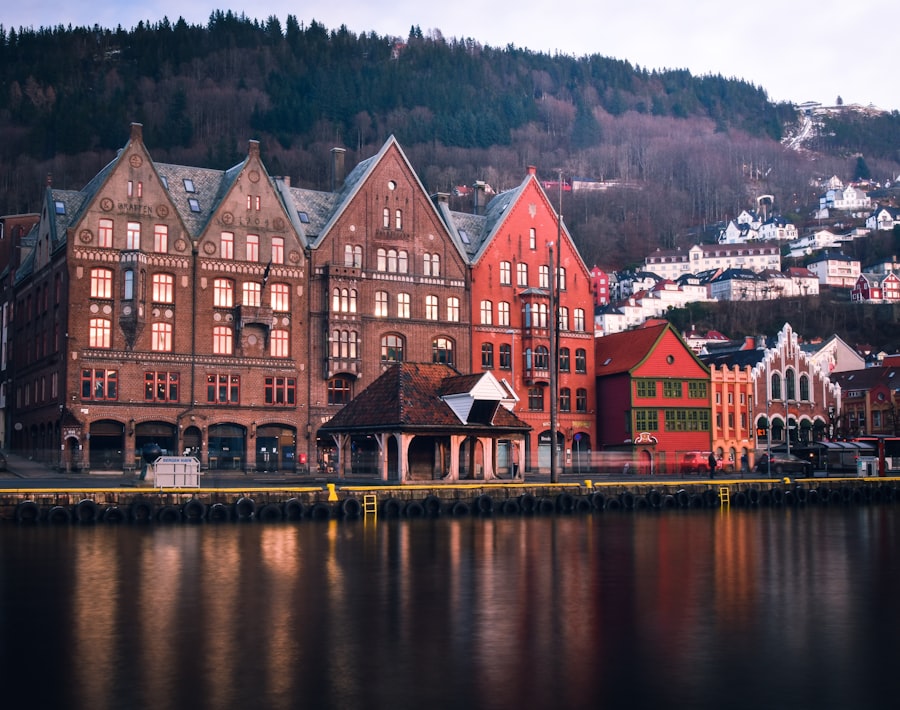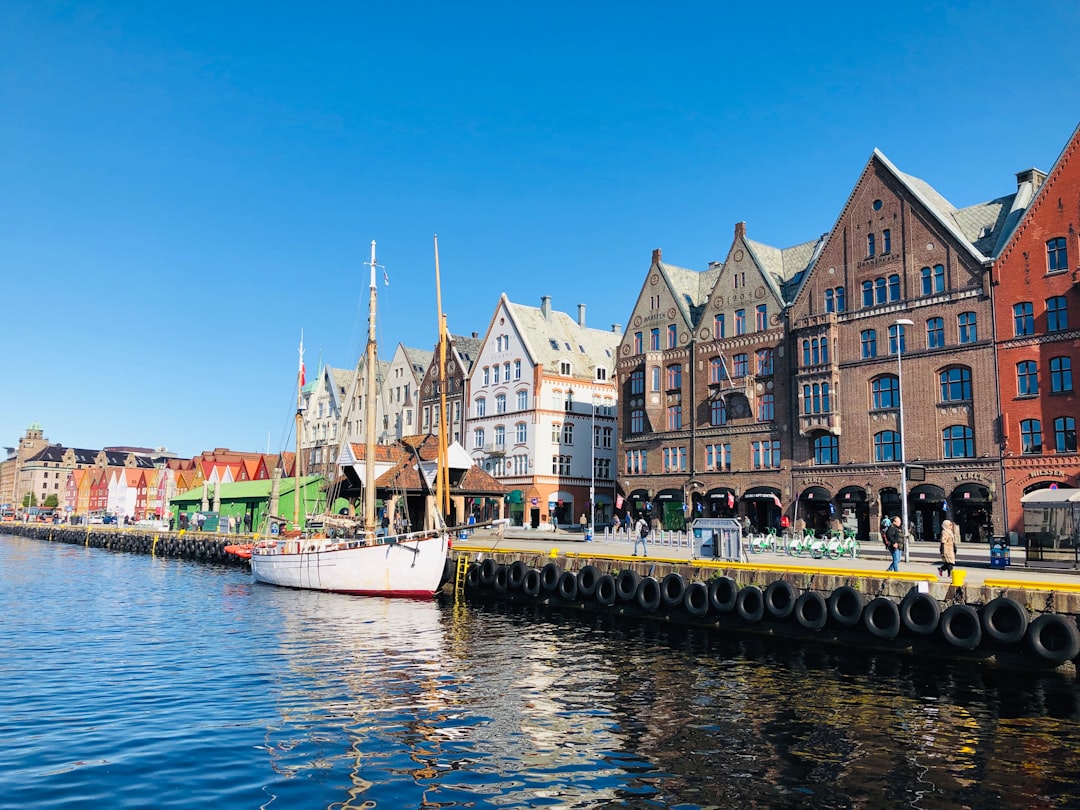Første Påskedag, or Easter Sunday, and Andre Påskedag, or Easter Monday, hold profound significance in Norway, marking the culmination of the Holy Week and the celebration of the resurrection of Jesus Christ. These days are not merely religious observances; they are deeply woven into the fabric of Norwegian culture and society. For many Norwegians, these holidays represent a time of reflection, family gatherings, and the renewal of hope that spring brings.
The importance of these days is underscored by the fact that they are public holidays, allowing individuals to partake in various activities that honour both their faith and their cultural heritage. The significance of Første Påskedag and Andre Påskedag extends beyond the church pews. They serve as a reminder of the values of community and togetherness that are central to Norwegian life.
Families often come together to celebrate, share meals, and engage in traditions that have been passed down through generations. This sense of unity is particularly poignant in a country where the long winter months can lead to feelings of isolation. As the snow begins to melt and the days grow longer, these holidays symbolise a fresh start and a reconnection with loved ones. Your journey to a smooth relocation starts here. Talk one-on-one with a Norway Relocation specialist and turn your plan into a reality.
Summary
- Første Påskedag & Andre Påskedag hold significant religious and cultural importance in Norway
- Norwegians observe Easter with religious ceremonies and church services
- Traditional customs include decorating eggs, going on Easter egg hunts, and enjoying festive meals
- Norwegians spend Første Påskedag & Andre Påskedag with family, attending church, and enjoying outdoor activities
- Culinary delights include traditional dishes like lamb, eggs, and marzipan treats
The Religious Observance of Easter in Norway
In Norway, the religious observance of Easter is marked by various traditions that reflect the country’s Christian heritage. Many Norwegians attend church services on Første Påskedag, where they participate in solemn rituals that commemorate the resurrection of Christ. The services are often filled with hymns, prayers, and readings from the Bible, creating an atmosphere of reverence and reflection.
The church bells ring out across towns and villages, calling the faithful to gather and celebrate this pivotal moment in Christianity. In addition to attending church services, many families engage in personal reflections during this time. It is common for individuals to take a moment to contemplate their faith and the significance of Easter in their lives.
This introspective approach is complemented by communal activities that foster a sense of belonging and shared belief. The intertwining of personal faith with community observance creates a rich tapestry of religious life during Easter in Norway.
Traditions and Customs on Første Påskedag & Andre Påskedag

Norwegian Easter traditions are a delightful blend of religious observance and cultural customs. One of the most notable traditions is the practice of “påskekrim,” or Easter crime stories. During this time, Norwegians indulge in reading crime novels or watching mystery shows, often leading to a surge in sales for this genre.
This quirky custom has become synonymous with Easter in Norway, adding an element of fun and intrigue to the holiday. Another cherished tradition is the decoration of homes with symbols of spring and renewal. Many families adorn their houses with colourful flowers, particularly yellow ones that signify new beginnings.
Children often participate in egg painting and decorating, which not only serves as a creative outlet but also reinforces family bonds as they work together on these projects. These customs reflect a deep appreciation for nature’s beauty and the joy that comes with celebrating life.
How Norwegians Spend Første Påskedag & Andre Påskedag
Første Påskedag and Andre Påskedag are typically spent in the company of family and friends, with many Norwegians taking advantage of the extended holiday to travel to their cabins or holiday homes. These getaways provide an opportunity to relax and enjoy the beauty of Norway’s landscapes as they transition from winter to spring. Families often engage in outdoor activities such as hiking or skiing, making the most of the natural surroundings while creating lasting memories together.
In addition to outdoor pursuits, many families gather for festive meals that showcase traditional Norwegian cuisine. These meals often feature lamb or fish, accompanied by an array of side dishes that highlight seasonal ingredients. The act of sharing food is central to Norwegian culture, and during these holidays, it takes on an even greater significance as families come together to celebrate their heritage and faith.
The Culinary Delights of Første Påskedag & Andre Påskedag
The culinary landscape during Første Påskedag and Andre Påskedag is rich and varied, reflecting Norway’s agricultural heritage and coastal bounty. Traditional dishes often include lamb, which is a symbol of sacrifice and renewal in Christian tradition. Roasted lamb served with potatoes and vegetables is a common feature on many dining tables during this time.
Additionally, fish dishes such as salmon or cod are also popular, showcasing Norway’s strong connection to its maritime roots. Desserts play an equally important role in Easter celebrations. One beloved treat is “påskekake,” a festive cake often decorated with bright icing or marzipan figures that represent spring themes.
Chocolate eggs filled with sweets are also a staple during this time, delighting children and adults alike. The culinary delights associated with these holidays not only satisfy appetites but also serve as a means of bringing families together around the table.
Outdoor Activities and Celebrations on Første Påskedag & Andre Påskedag

As spring begins to unfurl its beauty across Norway, outdoor activities become a focal point during Første Påskedag and Andre Påskedag. Many Norwegians take advantage of the longer daylight hours to engage in hiking, skiing, or simply enjoying nature’s splendour. The mountains and forests come alive with families exploring trails or participating in organised events that celebrate the arrival of spring.
In addition to individual pursuits, community celebrations often take place during these holidays. Local festivals may feature music, dance, and traditional games that bring people together in joyous celebration. These events foster a sense of camaraderie among neighbours and friends, reinforcing the importance of community ties during this festive season.
The Historical and Cultural Roots of Første Påskedag & Andre Påskedag in Norway
The historical roots of Første Påskedag and Andre Påskedag can be traced back to early Christianity’s arrival in Norway around the 10th century. As Christianity spread throughout the region, it began to intertwine with existing cultural practices, leading to a unique blend of religious observance and local customs. Over time, these holidays evolved into significant events that reflect both faith and national identity.
Culturally, Easter has become a time for Norwegians to reconnect with their heritage. Many families take part in rituals that have been passed down through generations, ensuring that traditions remain alive for future generations. This connection to history fosters a sense of pride among Norwegians as they celebrate their unique cultural identity while honouring their faith.
The Quiet Conclusion to Norway’s Easter Holiday
As the festivities draw to a close on Andre Påskedag, there is often a sense of quiet reflection among Norwegians. The transition from holiday cheer back to everyday life can be bittersweet; however, it also provides an opportunity for individuals to contemplate their experiences during this special time. Many take stock of their personal growth over the Easter period, considering how they can carry forward the lessons learned into their daily lives.
The end of Easter also signals a return to routine for many families. Children return to school, adults head back to work, and life resumes its usual pace. Yet, the memories created during these holidays linger on, serving as a reminder of the importance of family connections and shared experiences.
Reflection and Contemplation on Første Påskedag & Andre Påskedag
Første Påskedag and Andre Påskedag offer moments for reflection and contemplation for many Norwegians. The themes of resurrection and renewal resonate deeply within individuals as they consider their own lives and relationships. This introspective approach encourages people to think about their values, aspirations, and connections with others.
During this time, many choose to engage in personal practices such as journaling or meditative walks in nature. These activities allow individuals to process their thoughts and feelings while fostering a deeper understanding of themselves and their place within their communities. The contemplative nature of these holidays serves as a powerful reminder of the importance of self-awareness and personal growth.
How Første Påskedag & Andre Påskedag Differs from Easter Monday in Other Countries
While Første Påskedag is celebrated similarly across many Christian countries as Easter Sunday, Andre Påskedag stands out as a unique aspect of Norwegian culture. In contrast to other countries where Easter Monday may be viewed as merely an extension of Easter celebrations or even a day for rest after festivities, Norwegians embrace it as an integral part of their holiday experience. In many countries, Easter Monday may not hold significant cultural weight; however, in Norway, it is a day filled with its own traditions and activities that reflect local customs.
This distinction highlights how cultural context shapes holiday observances differently across nations while still maintaining core themes related to faith and renewal.
The Transition from Første Påskedag & Andre Påskedag to Ordinary Life in Norway
As Norwegians transition from Første Påskedag and Andre Påskedag back into ordinary life, there is often a renewed sense of purpose that accompanies this shift. The celebrations serve as a reminder of what truly matters: family connections, community ties, and personal growth. Many individuals carry forward the spirit of togetherness experienced during these holidays into their daily routines.
The return to everyday life does not diminish the significance of these holidays; rather, it reinforces their importance within Norwegian culture. As people resume their responsibilities at work or school, they often find ways to incorporate elements from their Easter celebrations into their lives—whether through continued family gatherings or by embracing outdoor activities that honour nature’s beauty. In conclusion, Første Påskedag and Andre Påskedag are more than just religious observances; they encapsulate the essence of Norwegian culture through traditions, culinary delights, outdoor activities, and moments for reflection.
As individuals navigate their way back into ordinary life after these holidays, they do so with a renewed appreciation for family bonds and community connections—elements that define what it means to be Norwegian during this special time of year. For those considering relocating to Norway or immersing themselves in its rich culture, the Norway Relocation Group can provide invaluable assistance throughout your journey. From navigating practicalities such as housing arrangements to understanding local customs and traditions, they offer tailored support that ensures a smooth transition into your new life in Norway.
As you settle into your new surroundings, consider enrolling in Norwegian courses at the NLS Norwegian Language School in Oslo. Learning the language will not only enhance your experience but also deepen your understanding of Norwegian culture—allowing you to fully embrace all that Første Påskedag and Andre Påskedag have to offer in your new home.
Register for a Norwegian class at the NLS Norwegian Language School now!

